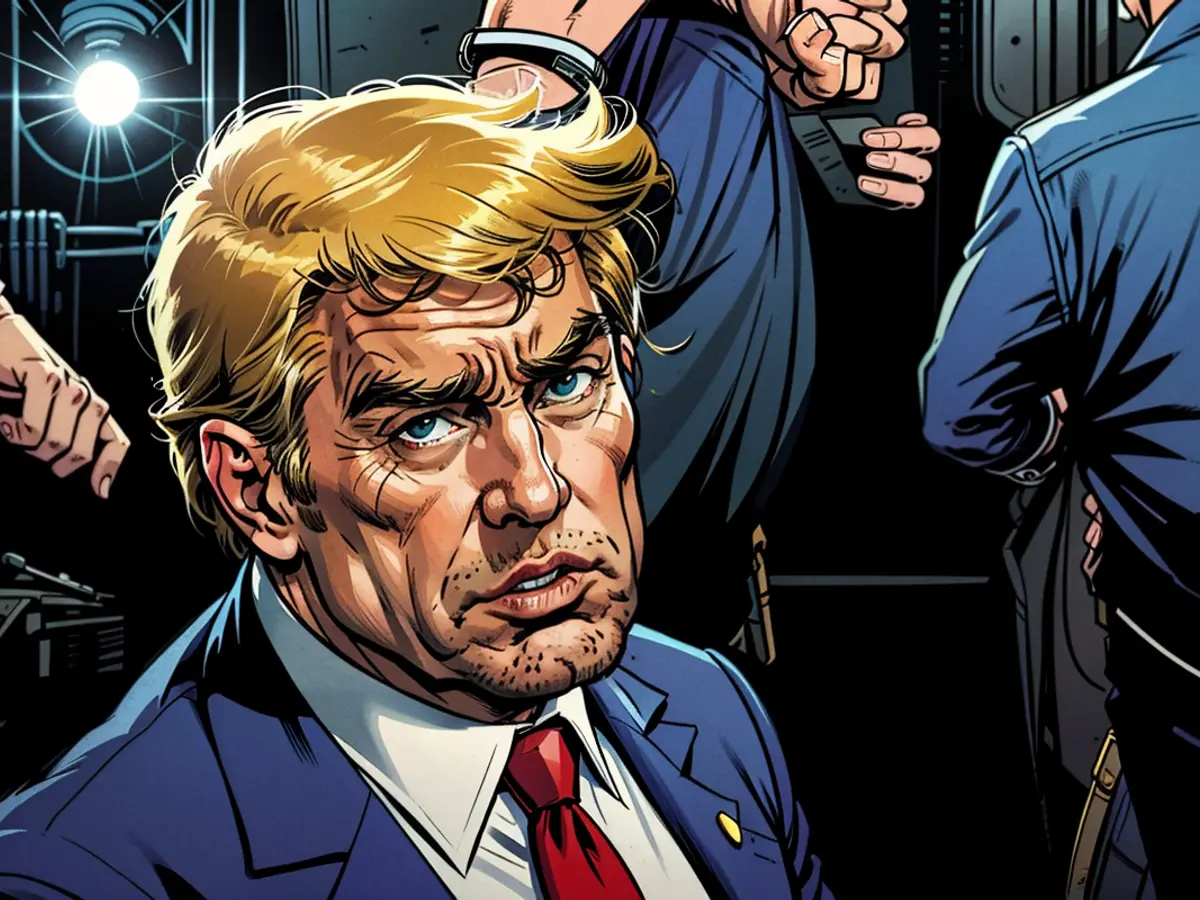Trump Faces a $2 billion Dilemma with Truth Social: Consider Selling or Persist?
The restrictions holding back ex-President Donald Trump from selling shares in his social media firm are about to expire by Thursday afternoon.
This means Trump – along with other Trump Media & Technology Group insiders – can sell shares in the controversial company that owns Truth Social if they so choose.
It's a significant moment for Trump Media, whose share value has significantly dropped since going public in March.
The former president is the company's face and its major shareholder. The possibility that Trump and other insiders might rush to sell has weighed heavily on the stock for weeks.
However, Trump has stated he has no plans to leave, telling reporters last week: "No, I'm not selling. No, I love it." These remarks caused Trump Media's share value to surge, albeit temporarily.
It's a tough call for Trump, who has seen his stake decrease to $1.8 billion. Just four months ago, it was worth $6.2 billion.
Even if Trump wanted to offload most or all of his shares, he'd be limited by reality. Someone who owns 57% of the stock can't just call their broker and sell a significant amount without negatively impacting the share price, according to Michael Stegemoller, a finance professor at Baylor University.
'Entirely reliant on one individual'
Trump Media is inseparable from the former president.
Not only does Trump have a controlling stake, but his initials (DJT) are the stock ticker symbol, and he's the platform's most popular user.
"This is a company whose worth is so entirely tied to one individual. It's quite unusual; we didn't see something like this even with Apple and Steve Jobs," said Stegemoller.
This is why Trump's announcement he's not selling is crucial.
"They think I'm leaving. That's why they're down, 'cause it's different if I leave. But I'm not leaving," Trump told reporters last week.
Disclosure necessary
If Trump decides to sell some shares, he'll be obligated to disclose that transaction within two business days.
The Securities and Exchange Commission requires shareholders owning over 10% of a company's shares to file a Form 4 detailing stock sales.
Lock-up restrictions, like those Trump's dealing with, are common in IPOs like the one that brought Trump Media public in the spring.
The purpose is to avoid the appearance that early insiders are rushing to exit quickly. They promise not to sell or borrow against their shares for around six months.
If Trump Media's shares remain above $12 on a closing basis, the lock-up restrictions expire as early as the close of trading on Thursday.
However, there's some confusion about precisely when the lock-up period ends, with some suggesting it may be a few days later.
Trump Media's shares closed at a new low on Wednesday.
Regardless of the share price, the lock-up restrictions expire by September 25 at the latest.
Trump selling isn't the only risk.
Once the lock-up restrictions lift, other insiders can sell their shares as well. For instance, co-founders Andy Litinsky and Wes Moss might decide to exit their positions. Both have sued the company over their shares.
Using shares as collateral
Another question is whether Trump will raise cash by using his shares in Trump Media as collateral for a loan.
This would allow him to avoid the optics of selling his shares outright but would require him to find a lender who's willing to loan to him.
Trump would likely need to disclose that he's using his shares as collateral for a loan, several legal experts told CNN. Failure to do so could lead to trouble with regulators.
Last month, the SEC fined legendary investor Carl Icahn for failing to disclose information linked to his alleged decision to pledge vast amounts of shares in his holding company to secure personal loans worth billions of dollars. Icahn settled the charges without admitting or denying the findings.
"Compliance with that requirement has often been a bit spotty, but the SEC just extracted a big fine from Carl Icahn a few weeks ago for failing to make a very similar filing," said Xavier Kowalski, a former partner at Schulte Roth & Zabel who is now a lecturer in the finance department at the University of Florida. "I would expect the SEC to take a harder line against anyone else doing the same thing."
After the lock-up restrictions expire, Trump and other insiders can choose to sell their shares in the business if they wish. Despite the significant drop in share value since going public, Trump has publicly stated that he has no plans to sell.
The entire value and success of Trump Media are heavily reliant on Trump himself, making his announcement of not selling crucial for the company's stock price.








